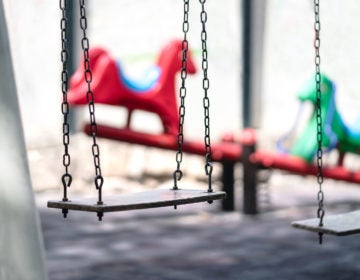Can trauma be passed down by generation?
A new study by researchers from Scandinavia and Johns Hopkins University offers surprising results about the daughters of parents who've experienced trauma.

“Stress and trauma is not an individual issue, it's a familial and societal issue,” says a child and adolescent psychiatrist who teaches at the University of Pennsylvania.(Anastasia_Vish/Bigstock)
A new study by researchers from Scandinavia and Johns Hopkins University found that daughters of women who experienced trauma were more likely to suffer psychiatric disorders themselves.
During World War II in Finland, some girls were evacuated to live with Swedish foster families while other girls stayed in Finland. The girls who had to leave home ended up having higher rates of mental illness and psychiatric hospitalizations.
And here’s the surprising new finding — so do their daughters.
The study seems to support what a lot of mental health providers have long known.
“Stress and trauma is not an individual issue, it’s a familial and societal issue,” said Steven Berkowitz, a child and adolescent psychiatrist who teaches at the University of Pennsylvania.
And while most kids in Philadelphia may not have parents who’ve experienced wartime trauma, many do face daily adversity, said Jeanne Felter, who leads the community and trauma counseling program at Thomas Jefferson University. She noted that, according to another study, 37 percent of people surveyed in Philadelphia said they experienced at least four kinds of childhood trauma.
“The people that have experienced the combat and the chaos have respite at some point,” she said. “But our children growing up in impoverished inner-city environments, where there’s this high level of adversity, that they face day in and day out — there’s no respite from that.”
Passing down trauma from one generation to another probably happens through a mix of nature and nurture, Berkowitz said.
“We know that stress and trauma change how one’s genes and DNA function through epigenetics,” he said.
Experts think that identifying and working with parents who’ve experienced trauma can help create better outcomes for their kids.
WHYY is your source for fact-based, in-depth journalism and information. As a nonprofit organization, we rely on financial support from readers like you. Please give today.




